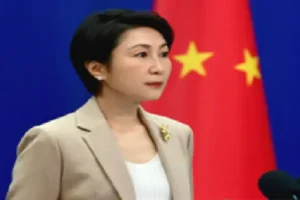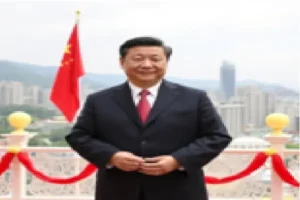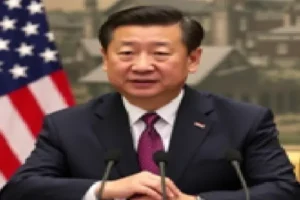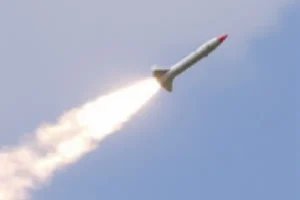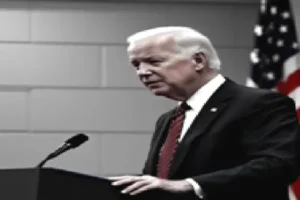“China-US Military Relations: Challenges and Insights.”
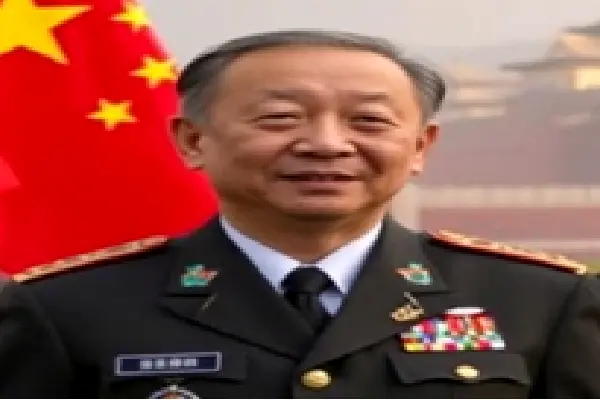
China-US military relations have been a focal point of global discourse for decades. The release of the US Department of Defense report titled “Military and Security Developments Involving the PRC” has reignited debates about the trajectory of these relations. The report, which accuses China of aggressive military expansion, has drawn sharp criticism from Chinese officials. This article delves into the key aspects of China-US military relations and the implications for global stability.
China-US Military Relations and Misleading Reports.
The US Department of Defense has been publishing reports on China for over 20 years, often portraying China as a growing military threat. The latest report alleges that China has surpassed 600 operational nuclear warheads and may exceed 1,000 by 2030. Additionally, it claims that China is developing intercontinental missile systems capable of targeting the US mainland. These assertions have been firmly rejected by China, with officials labeling the reports as deceptive and designed to justify US military expansion.
China-US Military Relations and Defense Policies.
China has consistently emphasized its commitment to a defensive national defense policy. According to Zhang Xiaogang, spokesperson for China’s Ministry of National Defense, China’s military development focuses on safeguarding national security rather than threatening other nations. In contrast, the US is accused of leveraging its military dominance to interfere in the affairs of other countries, often leading to humanitarian crises. This stark difference in defense policies underscores the complexities of China-US military relations.
China-US Military Relations and Nuclear Strategies.
China’s nuclear strategy is rooted in stability and self-defense, adhering to a no-first-use policy. This approach ensures that its nuclear arsenal remains at the minimum level necessary for national security. On the other hand, the US maintains the world’s largest nuclear arsenal and follows a first-use policy. The US also invests heavily in upgrading its nuclear capabilities, which China views as a destabilizing factor in global security. The divergence in nuclear strategies adds another layer of tension to China-US military relations.
China-US Military Relations and the Taiwan Issue.
The Taiwan issue remains a critical point of contention in China-US military relations. China considers Taiwan an integral part of its territory and opposes any form of external interference. The US, however, continues to strengthen military ties with Taiwan through arms sales and other means. This has escalated tensions in the Taiwan Strait, with China warning against actions that could lead to conflict. Resolving the Taiwan issue is essential for stabilizing China-US military relations.
China-US Military Relations and Global Security.
China has positioned itself as a proponent of global security through initiatives like the Global Security Initiative. It aims to foster international cooperation and a shared future for mankind. In contrast, the US is often criticized for its confrontational approach, including regime changes and military interventions. These differing perspectives on global security influence the dynamics of China-US military relations, highlighting the need for constructive dialogue.
China-US Military Relations and Future Prospects.
The future of China-US military relations hinges on open communication and mutual respect. China advocates for a military relationship based on equality, non-confrontation, and pragmatic cooperation. By fostering mutual trust, both nations can work towards a stable and peaceful coexistence. However, this requires the US to abandon its provocative actions and adopt a balanced perspective on China’s growth and military modernization.
Strengthening China-US Military Relations.
China-US military relations are at a critical juncture, with significant implications for global peace and stability. While differences in policies and perspectives persist, constructive engagement and mutual respect can pave the way for a healthier bilateral relationship. By addressing core issues like defense policies, nuclear strategies, and the Taiwan question, both nations can contribute to a more secure and stable world.
Read this also.
“Macao’s 25-Year Journey: Unity and Progress”

